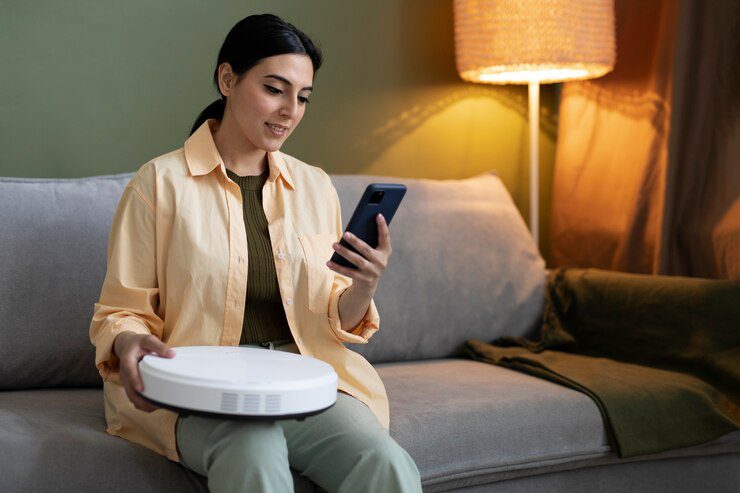Smart home solutions are today changing the way we live in homes and operate them and it impacts the intelligent life we are creating today. Be it smart speakers, or home automation techniques, these technologies bring more than just comforts, they bring solutions that include humanity’s vision of being integrated and environment-friendly. The market for smart homes is estimated to be $ 174 billion, by 2025, and hence smart home technology is a realm that unveils itself with time and is inclined to make itself more relevant to our societal needs.
Enhanced Convenience Through Automation
The first potential advantage that is very attractive to smart home technology is the ease of use. Turning on/off an AC with voice or turning on/off appliances and even controlling lights from a distance, smart devices enable people to execute chores that are time-consuming effectively. A current poll has found that 60% of smart homeowners say that the devices were bought to make their lives easier. For instance, through links between many common household devices such as thermostats, lights, or kitchen appliances, people can easily set up their conditions of daily living.
Improved Home Security
Another major advantage of smart home technology is an increase in the level of security. Security and surveillance devices such as smart cameras, video doorbells, and smart locks allow users to monitor homes and control access to their homes remotely including unlocking the doors for guests from the comfort of their workplaces or from wherever they are currently located. Research also reveals that homes that are protected have a 300 percent less chance of being burgled. Most systems have motion sensors, video surveillance, and two-way communication and this makes it possible for homeowners to be notified immediately if there is an incident. Security technologies allow one to remain conscious and secure without using obsolete techniques.
Energy Efficiency and Sustainability
Energy conservation has become important in the lives of many people, especially homeowners and the essentials of a smart home make it easy to achieve this. Smart thermostats and energy plugs are used to control the usage of power leading to low electricity bills and cutting down the impacts on the environment.
Integration of Individual Housing
Smart home technology is implemented and applied for individual use that is, it tailors the living style or environment to a specific routine use and other uses. With smart-device AI devices, such as voice assistants and learning thermostats, users can carry out repeated actions in harmony with the device’s learning, including lighting at certain times or morning music. Smart home devices are employed mainly for comfort, which is the case in more than three-quarters of smart home users according to various research.
Mortality and Chronic Disease Supervision
Except for convenience, smart home technology influences the health and well-being of the occupants. Smart purifiers, smart humidifiers, and even sensors that could detect whether the bed is occupied are slowly becoming a norm. Far from simply assuaging our discomfort, these gadgets help to improve our general health. For instance, smart air purifiers are electronics that help monitor the quality of air indoors and automatically alter their purification rates for those who have allergic reactions or aero-susceptible ailments. Lastly, popular devices with a focus on health management such as sleep trackers, and smart scales enable the user to pay a lot of attention to their health daily.
Smart Living at a Glance: A Brief Outlook
Given that this is an emerging technology, the future of smart home technology looks bright and prospective with expectations of better artificial intelligence, more recognition of voice commands, and broad compatibility with smart devices. Since consumers are increasingly making smart home devices their own, many benefits of this technology should emerge in varied areas in the future.
Conclusion
Smart home technology is changing the ways people live today as it provides maximum comfort and safety with an environmental touch. When trying new approaches, the interventions appear almost endless. Smart home industry not only improves people’s lives but also makes the world safer and more efficient for homeowners who get more control than ever between themselves and their surroundings.







